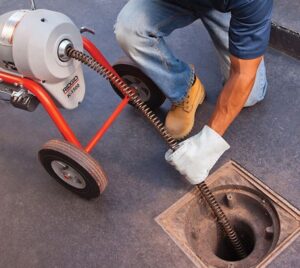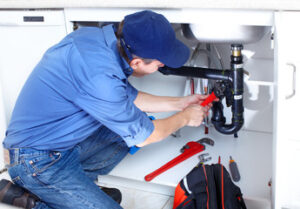Buckhead Plumbing serves several important functions, including distributing potable water and removing waste. These systems also protect the environment by reducing sewage and contaminated water pollution. They also prevent diseases such as cholera from spreading through water.
Plumbers are skilled professionals who install and repair pipes conveying liquids and gases. They usually complete an apprenticeship, which includes classroom instruction and paid on-the-job training.

Water pipes are a vital component of any home or commercial building. They carry pressurized freshwater and wastewater throughout the facility. These pipes are usually made of either plastic or metal. They are also designed to withstand the high levels of pressure that they are subjected to. They can be buried underground or run above ground. A plumber is a tradesman who installs and repairs these systems. It is important to know how your plumbing system works so you can understand any problems that may arise with it.
Potable water is used for drinking, cooking, washing and bathing. It can be natural, such as a pristine spring, or artificially treated, such as in a municipal water treatment plant. In both cases, the water is tested for potentially harmful contaminants. If the water tastes metallic, smells funny, or appears cloudy, it should be avoided. It could indicate that unsafe contaminants are present or that the supply lines have been compromised.
The pipes that carry potable water must be insulated in order to prevent the formation of deposits on the interior surface of the pipe. The insulation also helps to reduce the potential for corrosion. These deposits can be formed by minerals in the water and can restrict flow. The best pipe material for potable water is stainless steel, although copper and PVC are also commonly used. In addition, all potable water pipes must be installed properly in accordance with the applicable codes.
During construction, a plumber must ensure that all pipes are connected to the correct valves, and that they are not located in any hazard areas. For example, a plumbing line should not be located within ten feet of a sewer or drainage pipe. It should also be separated from septic tanks, cesspools, and leach fields by at least five feet.
The plumbing industry requires a wide range of skills and knowledge. Plumbers must be able to read blueprints and use specialized tools to perform their job. They also need to be knowledgeable about safety regulations and local building code requirements. They must also be able to identify the source of a problem and fix it in a timely manner. In addition, they must be able to work with different types of materials and adapt to changing weather conditions.
A plumbing system provides potable water and removes waste within a home or building. It consists of pipes that carry both water and sewage, as well as fixtures such as bathtubs, toilets, sinks, showers, and washing machines. It also includes water-carrying devices such as valves and faucets, and water heaters. The plumbing system may also include venting systems that transport gasses like natural or propane gas.
Plumbing reached its early apex in ancient Rome, with expansive systems of aqueducts and tile wastewater removal, but improvement was slow until the Industrial Revolution brought large, crowded populations to urban centres. The lack of adequate sanitation caused epidemics such as typhoid fever and dysentery. These were largely due to the consumption of tainted water, which was often discharged directly into open sewage ditches. Modern plumbing systems typically include pipes made of steel, copper, brass, plastic, or other nontoxic materials. They may also be insulated to prevent condensation.
The plumbing system in a building transports water and waste to and from the house. It consists of pipes, valves, fixtures, and other equipment. It is important to understand the principles of plumbing so that you can identify and fix problems. A well-functioning plumbing system prevents sewage from leaking into homes and provides clean, safe water for cooking and cleaning.
Plumbing also helps to protect the environment by preventing pollutants from entering groundwater and rivers. It is essential for every home and business to have an efficient plumbing system. It is vital for health and safety, and a plumbing company can help you design an appropriate system for your needs.
a plumber is a person or company that installs pipes and other fixtures for drinking, washing, and bathing. In addition to water, they can also handle sewage and hazardous wastes. Some plumbers work independently, while others are employed by firms or companies. The job of a plumber is not limited to residential plumbing, but can include commercial, industrial, and agricultural installations. A plumber may also be licensed by the state or local government to perform his/her duties.
Stormwater, also known as surface runoff or polluted stormwater, is any precipitation that does not evaporate or soak into the ground. In urban and suburban areas, the majority of stormwater comes from paved surfaces such as roads, driveways, sidewalks, and parking lots. As the stormwater runs over these surfaces, it picks up dirt, sand, nutrients, and other debris. It then flows into storm drains and eventually into lakes, streams, and rivers.
These contaminants can contaminate drinking water, cause ecological and human health issues, and even damage buildings. The best way to prevent stormwater pollution is to reduce the amount of paved surfaces in your neighborhood. By reducing the amount of impervious surface, you can increase the amount of stormwater that is absorbed by the soil.
A plumbing system consists of the pipe network that brings freshwater into a home and removes waste and wastewater. It includes pipes, faucets, and other fixtures that connect to a water supply or septic system. The plumbing system also uses pressure and friction to convey fluids throughout the house. It is a complex system, but it is crucial to the health of your family and the environment.
A piping system is a network of pipes used to convey fluids. It can be used to transport chemicals, gases, steam, or other liquids. It consists of tubing, pipes, fittings, valves, flanges, gaskets, and other accessories. Piping systems can be installed in various locations, including industrial plants and commercial buildings.
A plumber is a tradesman who specializes in installing and repairing plumbing systems. He or she also has the skills to install a range of other building components, such as ventilation and heating systems. In addition, a plumber can install electrical wiring and fixtures. Plumbing is essential for a building to function properly, as it ensures that water and waste are transported safely.
The first step in a plumbing project is to map out the piping layout. This involves determining where the water and sewer lines will run, as well as identifying the location of each fixture. Once the layout is complete, the plumber can begin to dig trenches. Once the trenches are dug, the plumber can begin laying pipe. The installation process may take several weeks, depending on the size of the building and the complexity of the piping system.
In addition to installing the piping system, plumbers must ensure that it is safe to use. This requires testing the pipes and other equipment to make sure that they are free of contaminants. In addition, the plumbing system must be able to handle high levels of pressure and temperature. In order to test the integrity of the piping, a plumber can use a variety of tools.
Piping is a complex process that can be difficult to design and assemble. Proper installation is crucial for safety and efficiency, so it is important to follow the proper regulations. Pipes are made of a variety of materials, including copper and plastic. In order to prevent damage, a plumber must be familiar with the different types of pipe materials and their properties.
While many people confuse piping with plumbing, the two are not the same. Plumbing is a system of pipes that distributes potable water and removes waste from homes. It includes water meters, pumps, expansion tanks, back flow preventers, and other devices. Piping, on the other hand, is an interconnected system of pipes that carry liquids from one item of equipment to another in a processing plant.


